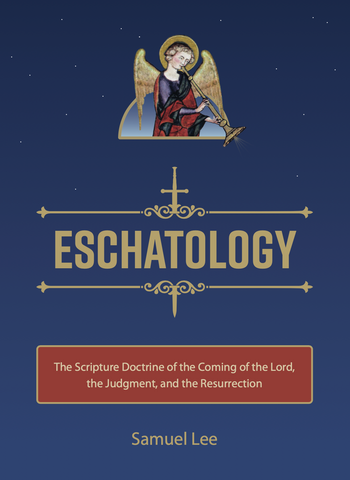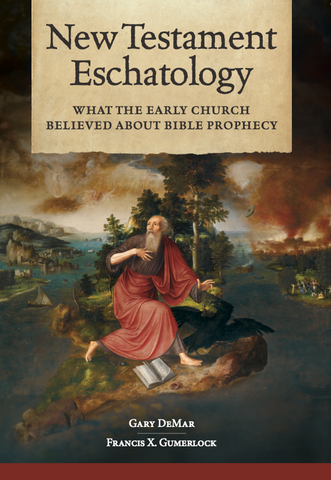STEPHEN WHITSETT, M.Div. Th.M. Ph.D., is a Professor at Southern Region LIFE Bible College. I have not been able to find anything about this college. It does not matter because going to college and having academic credentials carry little weight with me. He wrote some comments about my response to Jason Bradfield on mellō. (see my articles on Americanvision.org) Whitsett is a published author. He has published The Cold Case Against Full Preterism: AKA Realized Eschatology available on Amazon in the Kindle format. I have not read it.
The three reviewers accuse him of plagiarism. Lance Conley wrote, “I wish to recuse myself from ever being involved in helping to edit this book. It should be renamed ‘The Cold Case of Plagiarism’ By Stephen Whitsett.” He has some articles and book reviews on Academia here. His works show that he isn’t even a partial preterist. This comes out in “A Challenge to Kenneth Gentry and Steve Gregg’s Partial Preterism.”
In his responses to my responses to Bradfield on American Vision’s Facebook page he mentions “Wallace” twice.
• Wallace is considered a primary expert on Greek Grammar. He states concerning the mello esesthai of Acts 24:25 the root word “eimi” which means I exist, is put into a future tense, “will exist.” When combined with “about to” it becomes “about to, to be” which signifies that something will exist in the future. When the two verbs are combined the meaning then is even more pronounced, “what is sure to happen.” Hence Acts 24:15 is translated as “there will be” or “there is sure to be.” The esesthai modifies mello taking away the stress of a time element and making the importance of it happening the focus and intent of the statement.
• In Wallace Greek Grammar he explains the helping verb mellei in the indicative mood would suggest that HE SET, a day in which HE IS going to judge the world [Acts 17:31] (he appointed) where mellei is being used of certainty. If something is about to, it implies that it has been determined, it is going to happen. The certainty then is on that day he has set he will certainly judge the world because he is the son of man who was resurrected and ascended. It is certain that he will on that day judge the world without question.
I couldn’t tell if these were Whitsett’s words or Daniel B. Wallace’s words from his Greek Grammar: Beyond the Basics. Wallace does mention Acts 24:15 and 24:25, but he does not offer any commentary. He does mention a form of mellō several times.
• ἐκείνης ἤμελλεν διέρχεσθαι (Luke 19:4): he was about to pass through that way.
• τοῦτο δὲ ἔλεγεν σημαίνων ποίῳ θανάτῳ ἤμελλεν ἀποθνήσκειν (John 12:33): He was saying this, signifying what sort of death he was about to die.
• εἰ γὰρ κατὰ σάρκα ζῆτε μέλλετε ἀποθνήσκειν… (Rom. 8:13): For if you live by the flesh, you are about to die by the flesh…
• ὅταν μέλλῃ σαλπίζειν καὶ ἐτελέσθη τὸ μυστήριον τοῦ Θεοῦ (Rev. 10:7): whenever he is about to sound [the trumpet], then the mystery of God is finished
Wallace writes the following under the heading Completely Futuristic/Amplification (page 536)
Only an examination of the context will help one see whether this use of the present stresses immediacy or certainty. In this respect, the ambiguity of the semantic nuance of the completely futuristic present is akin to the ambiguity of the lexical nuance of μέλλω (which usually means either “I am about to” [immediately] or “I will inevitably” [certainty]). (Brackets are Wallace’s)
He writes something similar on page 752 referring to page 536. As far as I can tell by going through his Greek Grammar, this is about all Wallace says about μέλλω.
Back to Whitsett’s above comments. If something is “about to” happen, then it’s certainly going to happen. The use of μέλλω includes the idea of certainty. Anything the Bible says is going to happen will happen. The use of μέλλω places a timing element on the certainty of future events like the famine in Acts 11:28 and the shipwreck in 27:10, points I cover in my articles. If μέλλω can mean “about to” as Wallace, Mounce, and others claim but only means certainty, why bother adding μέλλω? Why was μέλλω, which can mean “about to,” used in Acts 11:28 and 17:10 if only certainty was the issue?
The claim is often made that Max King (1930-2023) is the originator of full preterism, and those who offer arguments like he does have been influenced by him. Several theologians in the 19th century zoomed in on the time indicators and made them an issue. Most people interested in preterism are familiar with J. Stuart Russell’s The Parousia that was published in 1878 and reissued in 1887. [1] R.C. Sproul [2] and Kenneth Gentry [3] endorsed it when it was reprinted by Baker Books. Charles Spurgeon wrote the following:
The second coming of Christ according to this volume had its fulfilment in the destruction of Jerusalem and the establishment of the gospel dispensation…. Though the author’s theory is carried too far, it has so much of truth in it, and throws so much new light upon obscure portions of the Scriptures, and is accompanied with so much critical research and close reasoning, that it can be injurious to none and may be profitable to all.
Israel Warren wrote a similar work with the same title published in 1879.
I will give a few instances where the true sense is obscured by the rendering in the authorized version. Luke xxi. 36, “Watch ye therefore, and pray always that ye may be accounted worthy to escape all these things that shall (that are about to) come to pass, and to stand before the Son of Man.” Acts xxiv. 15, “And have hope towards God, which they themselves also allow, that there shall be (that there is about to be) a resurrection of the dead, both of the just and unjust.” Acts xvii. 30, 31, “And the times of this ignorance God overlooked, but now commandeth all men everywhere to repent. Because he hath appointed a day in the which he will judge (he is about to Judge) the world in righteousness.”
Romans viii. 18, “For I reckon that the sufferings of this present time are not worthy to be compared with the glory that shall (the glory about to) be revealed in us.” First Timothy, iv. 8, “Having promise of the life that now is, and of that which is to come,” read, of that about to come. Chapter vi. 19, “Laying up in store for themselves a good foundation against the time to come (against that about to come) that they may lay hold on eternal life.” Second Timothy, iv. i, “I charge thee therefore before God, and the Lord Jesus Christ, who shall judge (who is about to Judge) the quick and the dead, at his appearing and his kingdom.” Rev. xii. 5, “And she brought forth a man child, who was to rule (who was about to rule) all nations with a rod of iron.” Heb. i, 14, “Are they not all ministering spirits, sent forth to minister for them who shall be (who are about to be) heirs of salvation.” Heb. vi. 5, “The powers of the world to come,” read, “the powers of the approaching age.” Rarely is μέλλω correctly rendered in the A.V. [Authorized Version/KJV] One instance may be given in Heb. viii. 5, “As Moses was admonished of God, when he was about to make the tabernacle,” but not one can I find where the word has relation to the kingdom of God. These instances where μέλλω appears in connection with the resurrection, the judgment, and the glory then about to be revealed, which in 1st Peter i. 5, is called, a “salvation ready to be revealed in the last time,” give more than a hint concerning the nearness of “the last time,” and rebuke any attempt to make the prophecies of Christ in Matt, xxiv, Mark xiii, and Luke xvii. and xxi. chapters accord with the accepted Eschatology.
There are others like Samuel Lee’s book Eschatology that was published in 1859.

Eschatology
Predictions about the end have a long and less than accurate history. What’s the reason? How could so many be so wrong for so many years? Why does prophetic speculation run rampant today given the excesses of failed predictions based on the claimed certainties of “thus say the Scriptures”? Samuel Lee published Eschatology, Or, The Scripture Doctrine of the Coming of the Lord, the Judgment, and the Resurrection in 1859.
Buy NowQuestioning long-held interpretations is not a new endeavor, but it’s difficult to be a legitimate Protestant today. There are few allowances for protesting.
It’s my opinion that those who have attacked me are leading people astray by claiming that questioning longstanding eschatological interpretations is something new. It’s not. Their fallback position when they can’t offer exegetical arguments is to rely on the Nicene Creed. The creeds are good when they quote Scripture on what a Christian is to believe. The Nicene Creed states, “He will come again with glory to judge the living and the dead.” Jesus did come in glory to judge the living and the dead. “For the Son of Man is about to [mellō] come in the glory of His Father with His angels and WILL THEN REPAY EVERY MAN ACCORDING TO HIS DEEDS.” (Matt. 16:27) Jesus was “about to” do this related to those who had died. Jesus continues to do this with all of us at our death. See my analysis of the Nicene Creed in New Testament Eschatology: What the Early Church Believed about Bible Prophecy.

New Testament Eschatology
Since the futurist perspective has been promoted as an early church reality by so many for so long, few question it. New Testament Eschatology challenges this prevailing futurist view with a careful study of the historical record. The evidence shows that many early church writers understood the destruction of Jerusalem in AD 70 to be the end of the Old Covenant world.
Buy Now[1] “The words ‘he will judge’ [in Acts 17:31] do not express a simple future, but a speedy future, μέλλει κρίνειν, He is about to judge, or will soon judge. This shade of meaning is not preserved in our English Version, but it is not unimportant. Here, then, we are again met by the oft-recurring association of the Parousia and the judgment, both of which were evidently regarded by the apostle as nigh at hand.” Russell, The Parousia, 153-154.
[2] “One of the most important treatments of biblical eschatology available today. The issues raised in The Parousia are vitally important not only for eschatology, but also for the debate over the credibility of sacred Scripture.”
[3] “Although I do not agree with all the conclusions of The Parousia, I highly recommend this well-organized, carefully argued, and compellingly written volume. It is one of the most persuasive and challenging books I have read on the subject, and has had a great impact on my thinking.”

